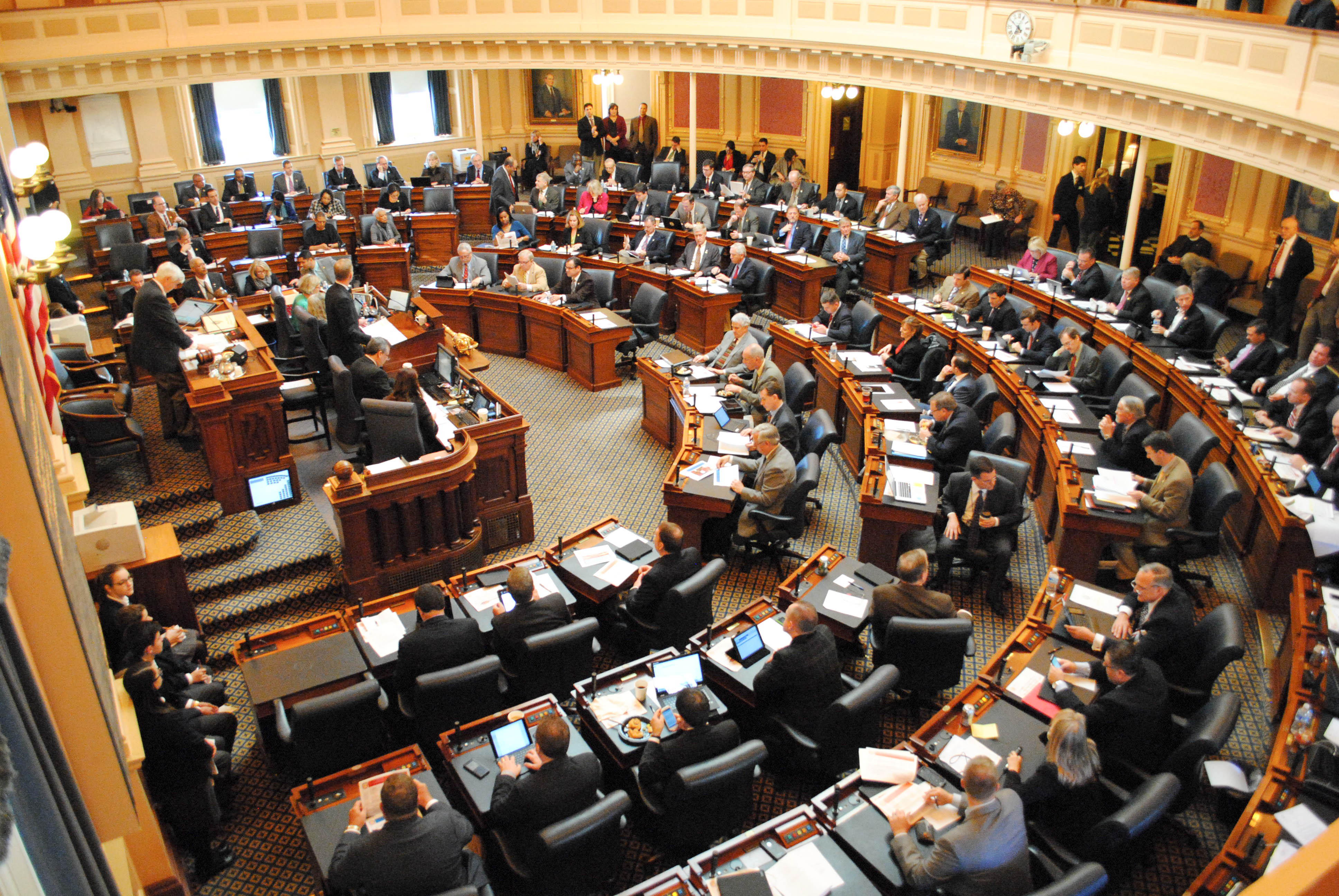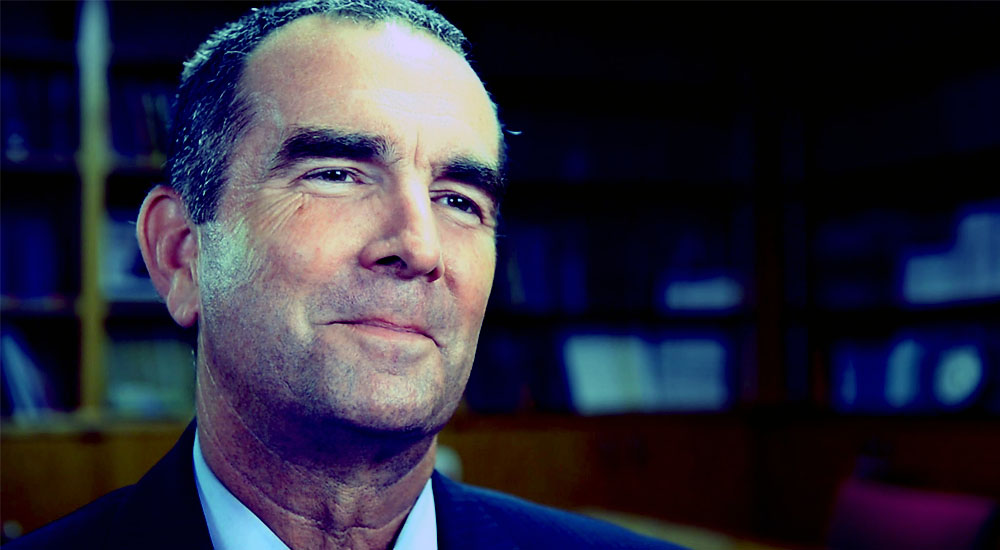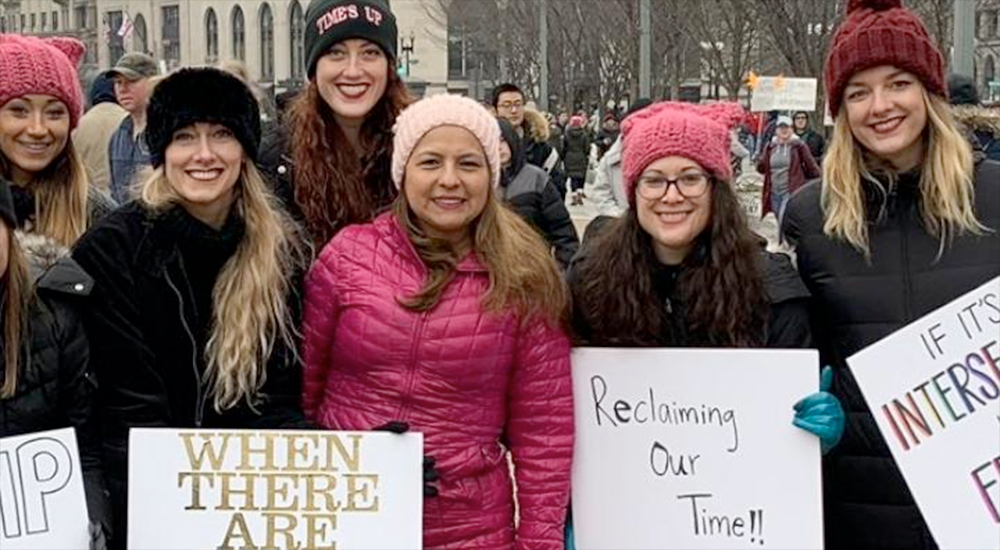If enacted, when one abuses a cat or dog they could be charged with a Class 6 felony and receive up to five years in prison.

Virginia's Public Square
Virginia's Public Square

If enacted, when one abuses a cat or dog they could be charged with a Class 6 felony and receive up to five years in prison.

Fourteen gun control bills were defeated by Virginia House Republicans, leaving four remaining. While gun rights supporters said Governor Northam’s agenda appeared dead for the year, they warned these bills represented a wishlist by gun control proponents which could pass if Republicans lose the House and Senate this November.

With the legislation dead in the Senate, there is a minimum wage increase bill still in the Commerce and Labor Committee in the House of Delegates.

The legislation based on the 24 priority recommendations from the Select Committee on School Safety are set to be voted on this week in the Virginia House of Delegates

“Republicans have won the ‘framing war’ over voter ID, largely neutralizing the Democratic voter suppression frame, even among average Democrats,” a 2017 study shows.

Del. Elizabeth Guzman and Ibraheem Samirah attended an event which national Democratic leaders denounced as anti-Semitic and tainted by racism and bigotry. Republican leaders condemned their attendance and called on them to denounce the views of Nation of Islam leader Louis Farrakhan.

Employment projections through 2024 show that Virginia’s economy is set to grow 9.4 percent, exceeding the national growth rate of 6.5 percent.

The bipartisan, bicameral bill from Virginia lawmakers would increase the minimum age for those prohibited from “purchasing or possessing tobacco products, nicotine vapor products, and alternative nicotine products.”

On Thursday in Richmond, Democratic leaders announced their support for a sweeping repeal of abortion restrictions in Virginia, including deregulation of third trimester late term abortions up until the moment of birth. The press conference, attended by Governor Ralph Northam, Lieutenant Governor Justin Fairfax, Attorney General Mark Herring, and a host of Democratic lawmakers, touted two pieces of legislation filed by Democratic lawmakers, the Repeal Act and the Reproductive Freedom Act.
The Repeal Act, introduced as HB2491 by Delegate Kathy Tran (D-Springfield), would repeal restrictions on third trimester abortions, allow abortionists to self-certify the necessity of the procedures, eliminate informed consent requirements, repeal health and safety standards for abortion clinics, allow late term abortions to be performed in outpatient clinics, waive ultrasound requirements, and eliminate the 24 hour waiting period for abortions in Virginia, among other provisions.
“I introduced House bill 2491, the repeal law, to lift medically unnecessary and unduly burdensome requirements for women to access abortions in the Commonwealth,” said Tran.
“This bill removes hospital requirements on clinics and providers, laws that mandate informed consent, a combination of mandatory ultrasounds, biased literature, and the 24 hour waiting period, and additional doctor requirements for late term abortions,” Tran continued, describing the provisions of the bill.
Third trimester abortions remain highly unpopular with voters, with just 13% saying the procedure should “generally be legal”, according to nonpartisan polling conducted by Gallup, which noted that trimesters were “still key to U.S. abortion views.”
The Reproductive Freedom Act, introduced by Delegate Charniele Herring (D-Alexandria) as HB2369 in the House, and by Jennifer Boysko (D-Herndon) as SB1637 in the Senate, would establish a “fundamental right” to abortion in the Code of Virginia, prohibiting the Commonwealth from enacting restrictions on abortions, including late term procedures in the third trimester of pregnancy. The measure was backed by Governor Northam during his annual State of the Commonwealth address, in which the governor also called for higher spending, sweeping gun control, and a repeal of Virginia’s law requiring voters show photo ID at the polls.
The Democratic leaders were joined by Amy Hagstrom Miller, President and CEO of Whole Woman’s Health, a chain of abortion clinics currently operating in six states, including one location in Charlottesville, Virginia. Miller’s abortion business was the lead plaintiff in the Supreme Court case Whole Woman’s Health v. Hellerstedt, which overturned certain restrictions applicable to abortion clinics.
“We provide fabulous abortion care and we fight the draconian abortion regulations and restrictions,” said Miller. “As abortion providers, we believe that everybody deserves dignity, deserves respect, and that our patients should be at the center of their own health care decisions.”
“That’s why we fight harmful anti-abortion laws, and that’s why we support legislation like this,” continued Miller, saying that passage of the Repeal Act was the “first step” in the fight to expand abortion in Virginia.
An hour before the press conference, lawmakers defeated the Senate’s version of the Repeal Act in the Committee on Education and Health, introduced by Senator Jennifer McClellan (D-Richmond), on a party line vote, with seven Democrats in support and eight Republicans in opposition.
“So, we continue to fight, and we will be back next year to make sure that the Repeal Act passes,” said McClellan.
At the same committee hearing, Boysko’s Reproductive Freedom Act was also defeated on a party line vote.
Boysko, a former board member of NARAL Pro-Choice Virginia and staunch abortion advocate, said she was disappointed by the failure of her bill.
Following the defeat of the Senate bills, and foreshadowing the likely defeat of the measures in the House this year, Northam, Fairfax, and Herring said it was necessary to elect Democratic majorities in November to repeal restrictions on abortion next session.
“So when can’t change peoples minds, we need to change seats,” said Governor Northam, speaking to the upcoming November elections.
Northam, who is a doctor, worked as a pediatric neurologist prior to being elected governor.
Lieutenant Governor Justin Fairfax, a strong supporter of abortion, echoed the governor’s electoral sentiments.
“Though we had some setbacks today in committee around this legislation, please be on notice that when we come back for our next General Assembly session, it will be a very different outcome, because we will have more allies in the House and the Senate,” added Fairfax, who formerly served as a board member of the Planned Parenthood Metropolitan Washington Action Fund.
“I will continue to bang that gavel for progress,” said Fairfax.
Vowing to be a “brick wall” against restrictions on abortion, Attorney General Mark Herring also called on Virginians to elect a pro-choice Democratic majority, while also noting his work as Attorney General fighting against a twenty-week abortion ban and working to protect funding for Planned Parenthood.
“In 2017, Virginia elected three pro-choice, statewide, state elected officials, fifteen new pro-choice delegates, and this past election, elected three pro-choice congresswomen,” added Herring.
“We need a pro-choice majority in the General Assembly,” Herring continued.
During the 2016-2017 statewide campaign cycle, abortion advocates contributed heavily to Democratic campaigns in hopes of repealing abortion restrictions, donating a combined total of $4,871,584 directly and in-kind to pro-abortion politicians, according to campaign finance reports compiled by VPAP.
While that investment helped elect Democrats to the offices of Governor, Lieutenant Governor, and Attorney General, it stopped short of capturing legislative majorities in the House of Delegates and the state Senate, where Republicans held on to narrow majorities of 51-49 and 21-19, respectively.
Though the rollback of abortion regulations is unlikely to pass this year, due to opposition from Republican lawmakers, that could change following November’s elections.
Watch highlights from the press conference below, in longer form than the summary above.

The House Education Committee took up a few bills Wednesday stemming from the findings provided by the Select Committee on School Safety. The first select committee formed in the Virginia state legislature in 155 years was created after the February 2018 school shooting in Parkland, Florida.
After the November authorization of the 24-point priority recommendation plan to increase security in schools, Speaker of the House of Delegates Kirk Cox (R-Colonial Heights), who leads the committee, said the “final product would be comprehensive and consensus-driven.”
Addressing the committee, Speaker Cox said the work done by the select committee was “groundbreaking.”
Referencing comments made by the Virginia General Assembly’s Joint Legislative Audit and Review Commission (JLARC), Cox added, “good news for Virginia…in so many different areas, Virginia was a leader…in the top five of states on school safety.”
The plan from the bipartisan select committee includes realigning the role of school counselors, statewide mental health and suicide prevention efforts, increasing funding for school resource officers, and bolstering school security grants, according to the Select Committee on School Safety’s “Priority Recommendations” report.
Even though dozens of school safety-minded bills have been forwarded, just a few were taken up Wednesday morning.
House Bill 1733, patroned by House Majority Leader Todd Gilbert (R-Shenandoah), would require a school division to enter into a memorandum of understanding with a local law enforcement agency that sets forth the powers and duties of the school resource officers (SROs). The legislation was passed unanimously by the 22 members on the committee.
House Bill 1725, introduced Delegate Barry Knight (R-Chesapeake), dictates that each school board must cooperate with local building officials and a local fire marshal to develop a procurement plan to ensure that all security enhancements to public school buildings are in compliance with the Uniform Statewide Building Code and Statewide Fire Prevention Code. The bill passed with a unanimous vote.
House Bill 1732, sponsored by Delegate Israel O’Quinn (R-Bristol), would set forth annual safety training in public elementary and secondary schools. Principals would be required to develop and deliver – to each student and employee – training on safety procedures in the event of an emergency situation on school property. The bill passed with a unanimous vote.
House Bill 1738, introduced by Majority Whip Nick Rush (R-Floyd), would require a licensed architect or professional engineer to approve all plans and specifications for new or remodeled public school building construction. Moreover, the designee must be trained and experienced in crime prevention through environmental design. The bill passed with a unanimous vote.
House Bill 1729, introduced by House Education Committee Chairman Steven Landes (R-Augusta), would require school counselors across the state to spend at least 80 percent of their time counseling students. The bill passed with a unanimous vote.
House Bill 1752, patroned by Delegate Paul Krizek (D-Alexandria), would create a school holiday on the first Tuesday of November, which is Election Day. The legislation would alleviate the chance that schools are full of students, staff, and teachers when elections are held in case of an emergency on school grounds. The bill passed with an 18-3 vote.
Delegate Landes also proposed House Bill 1615, which would change the date of June primary elections from the second Tuesday of the month to the third Tuesday so schools will not be in session. That bill, however, was not taken up Wednesday.
Delegate Rush’s House Bill 1739 specifies that security equipment in schools includes software and mobile applications, which is eligible for grants through the Public School Security Equipment Grant Act of 2013, but was not voted on.